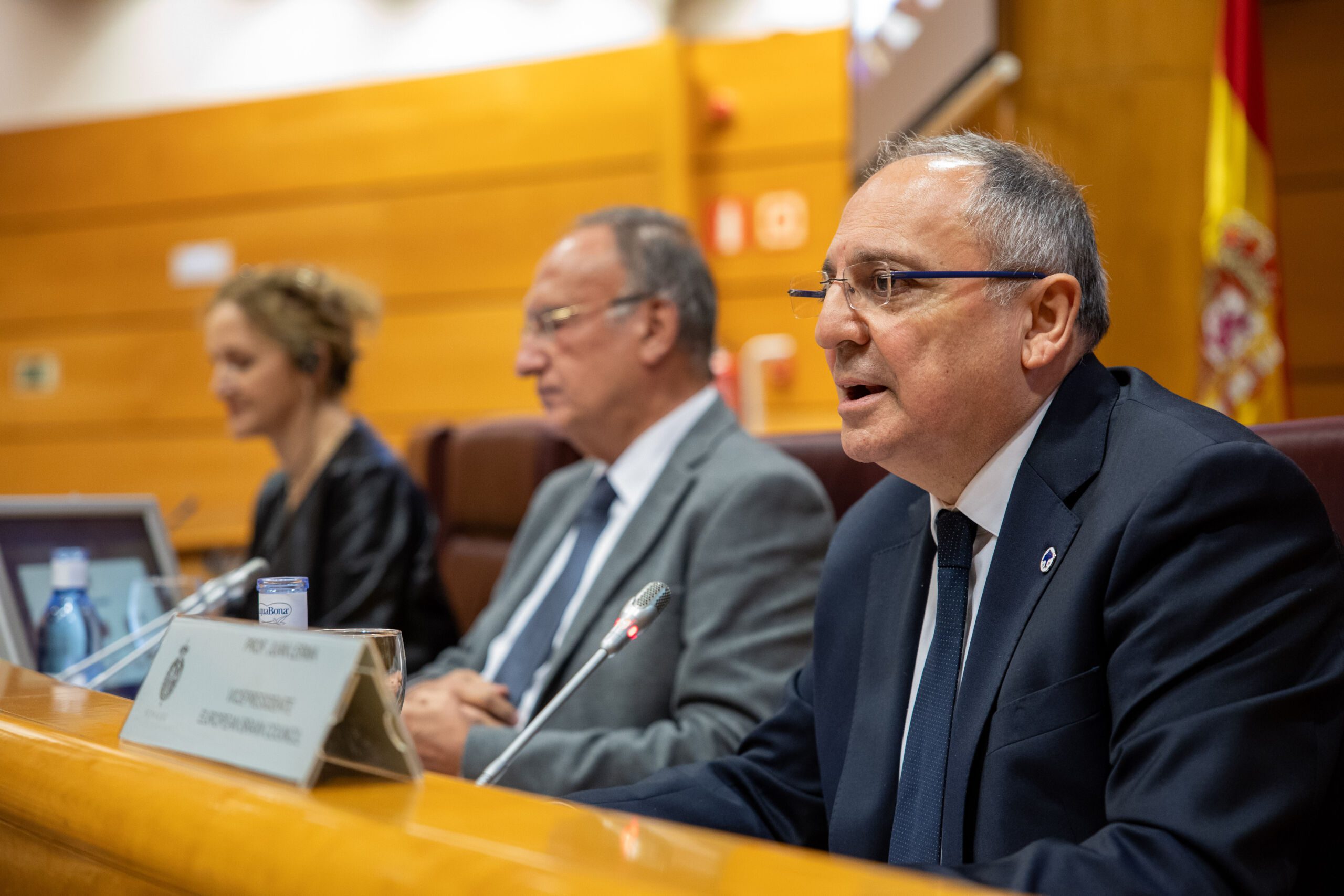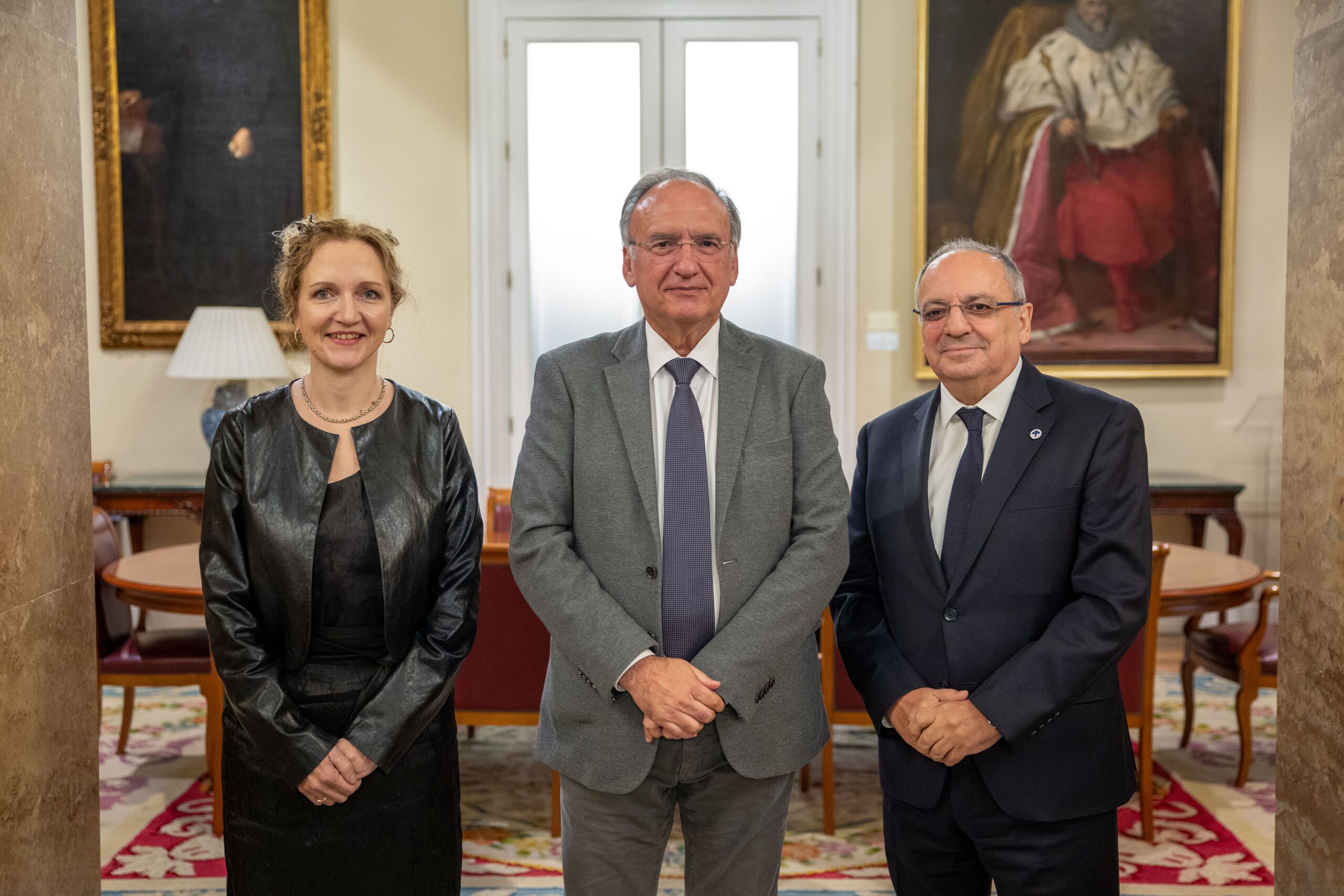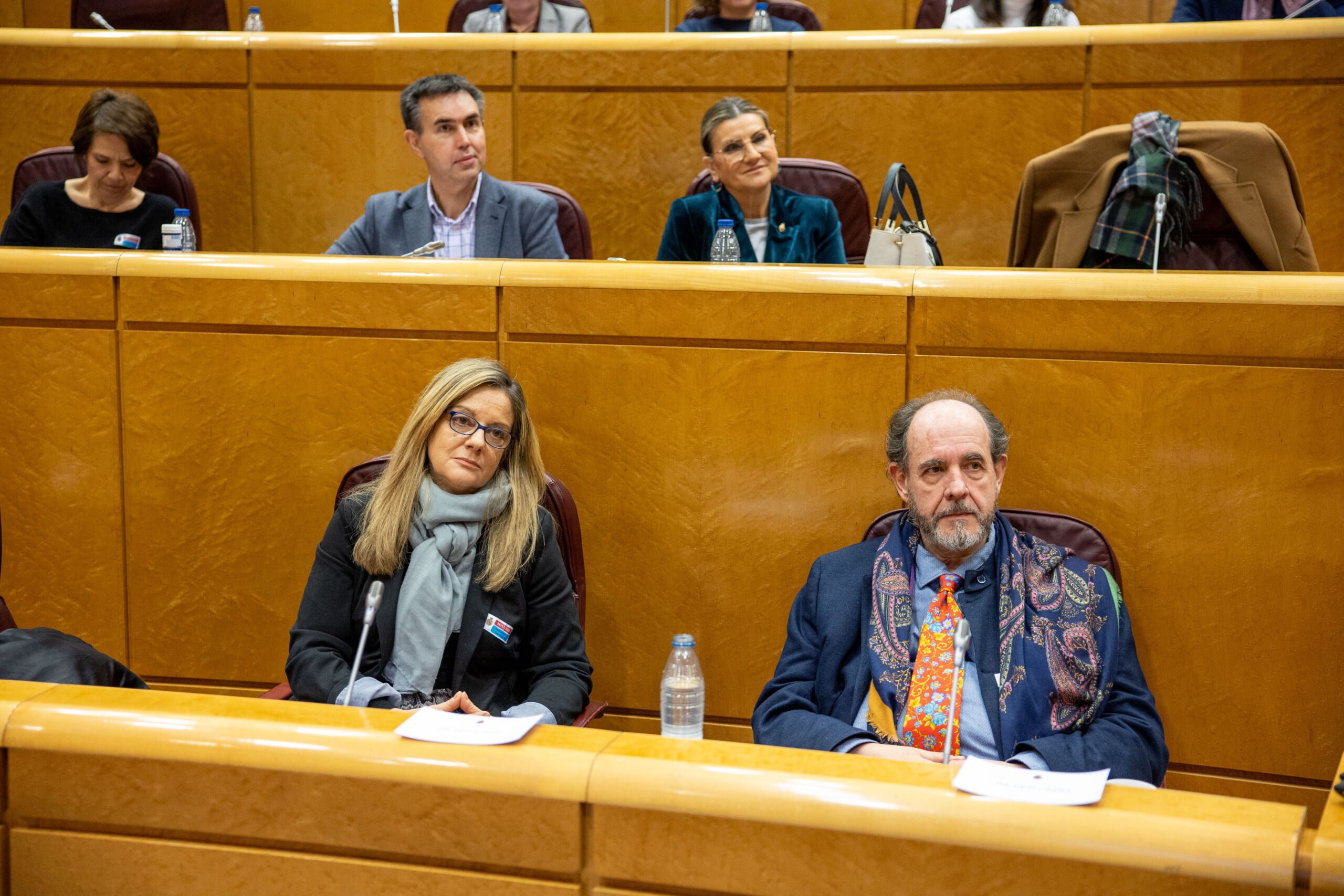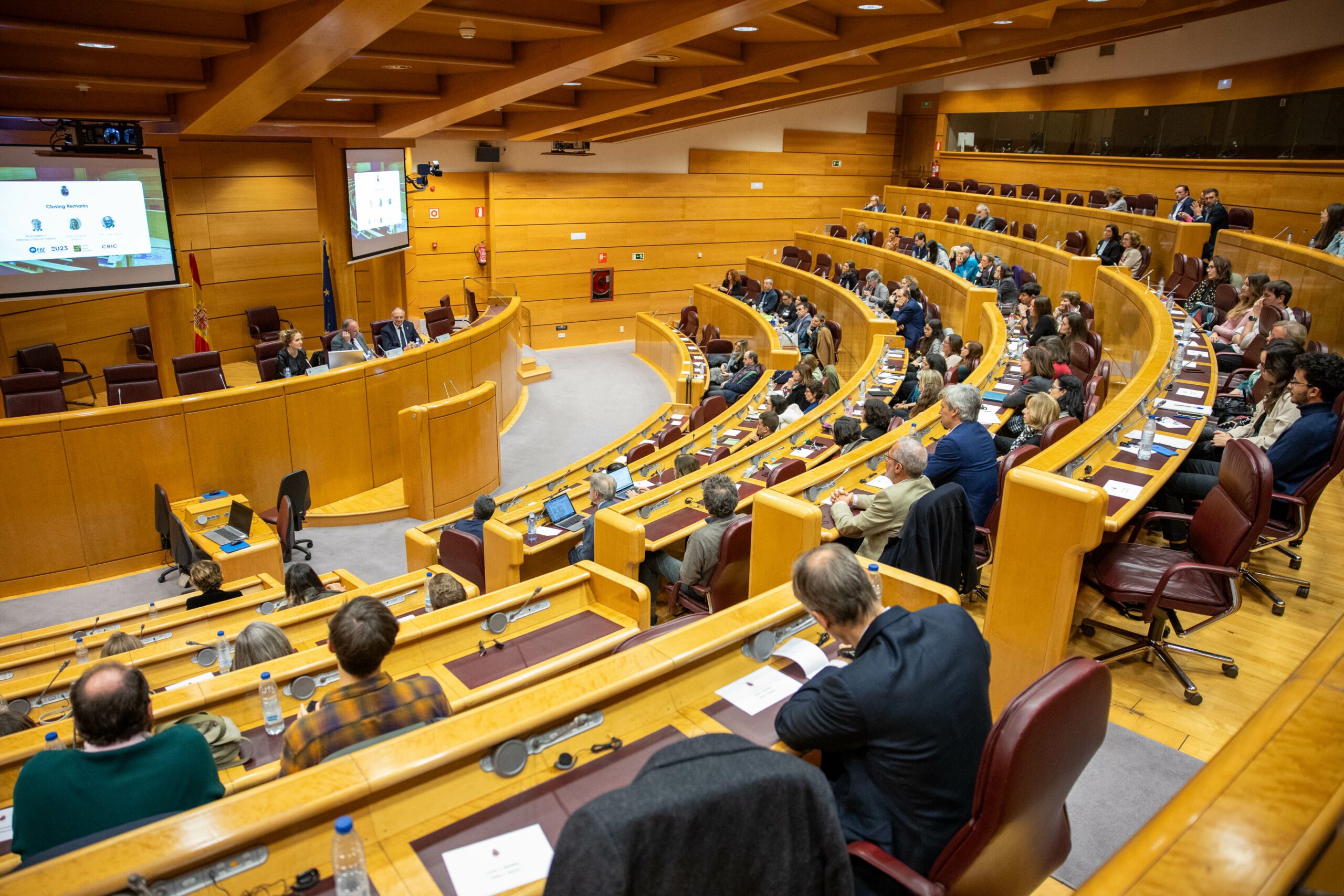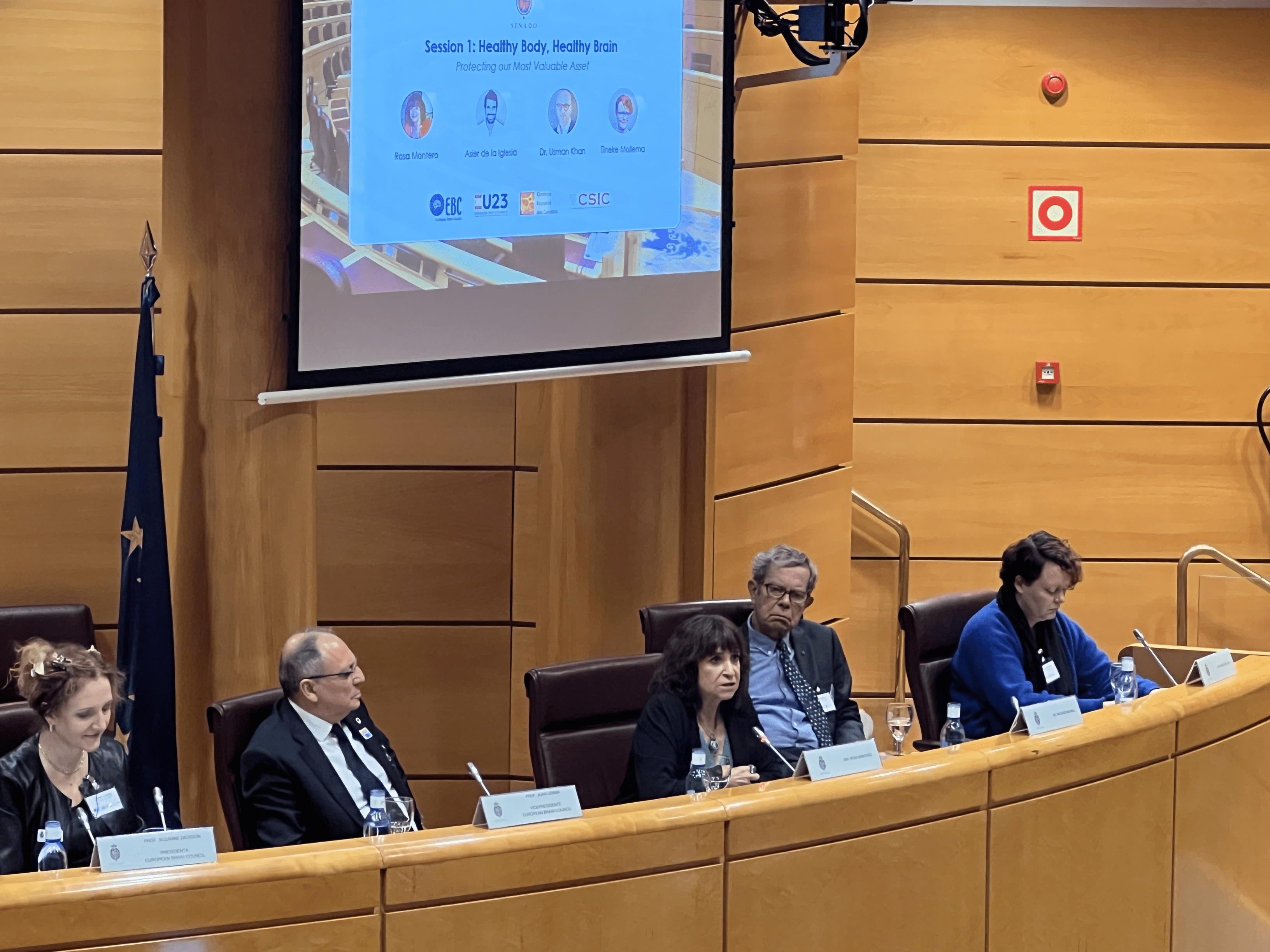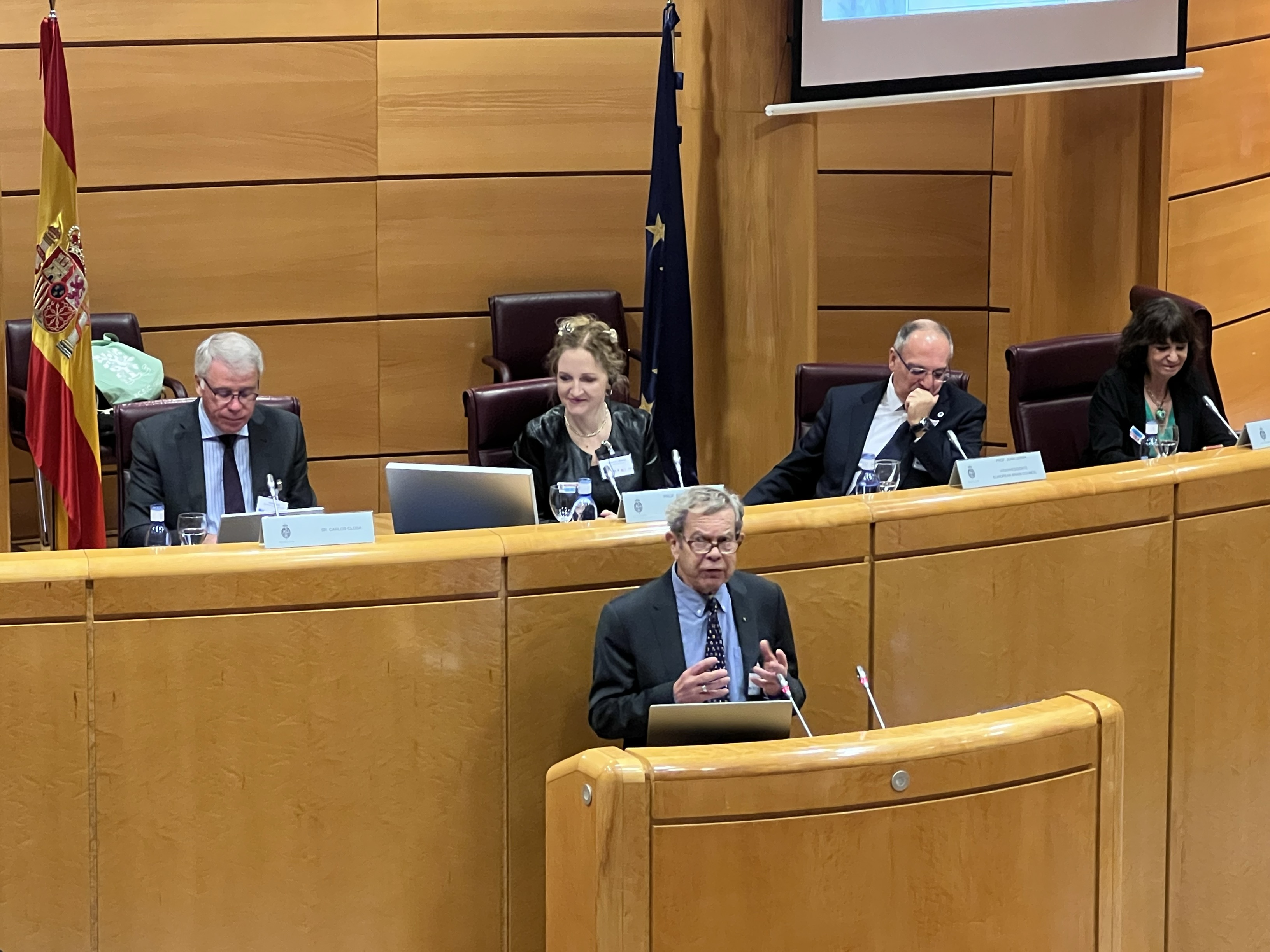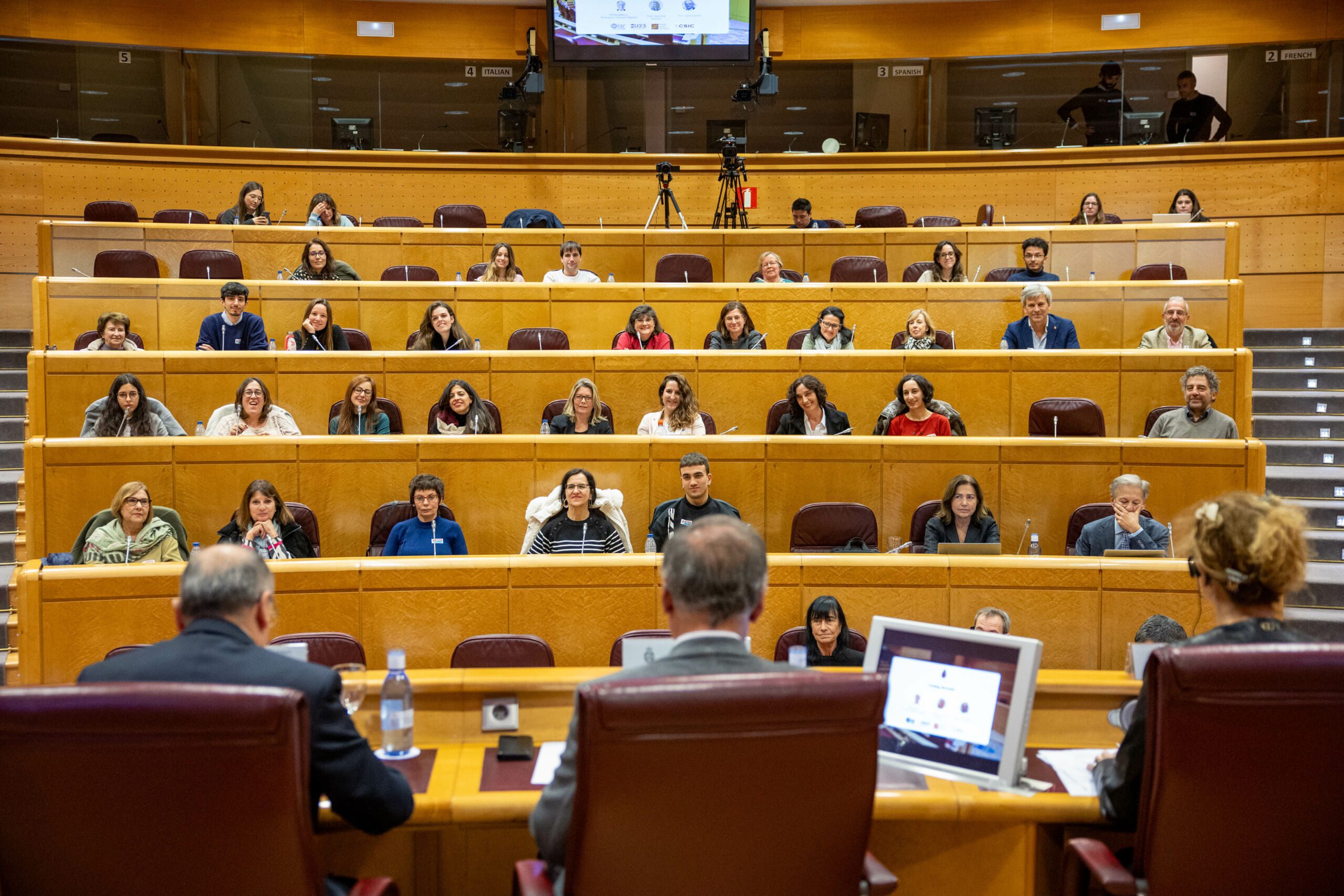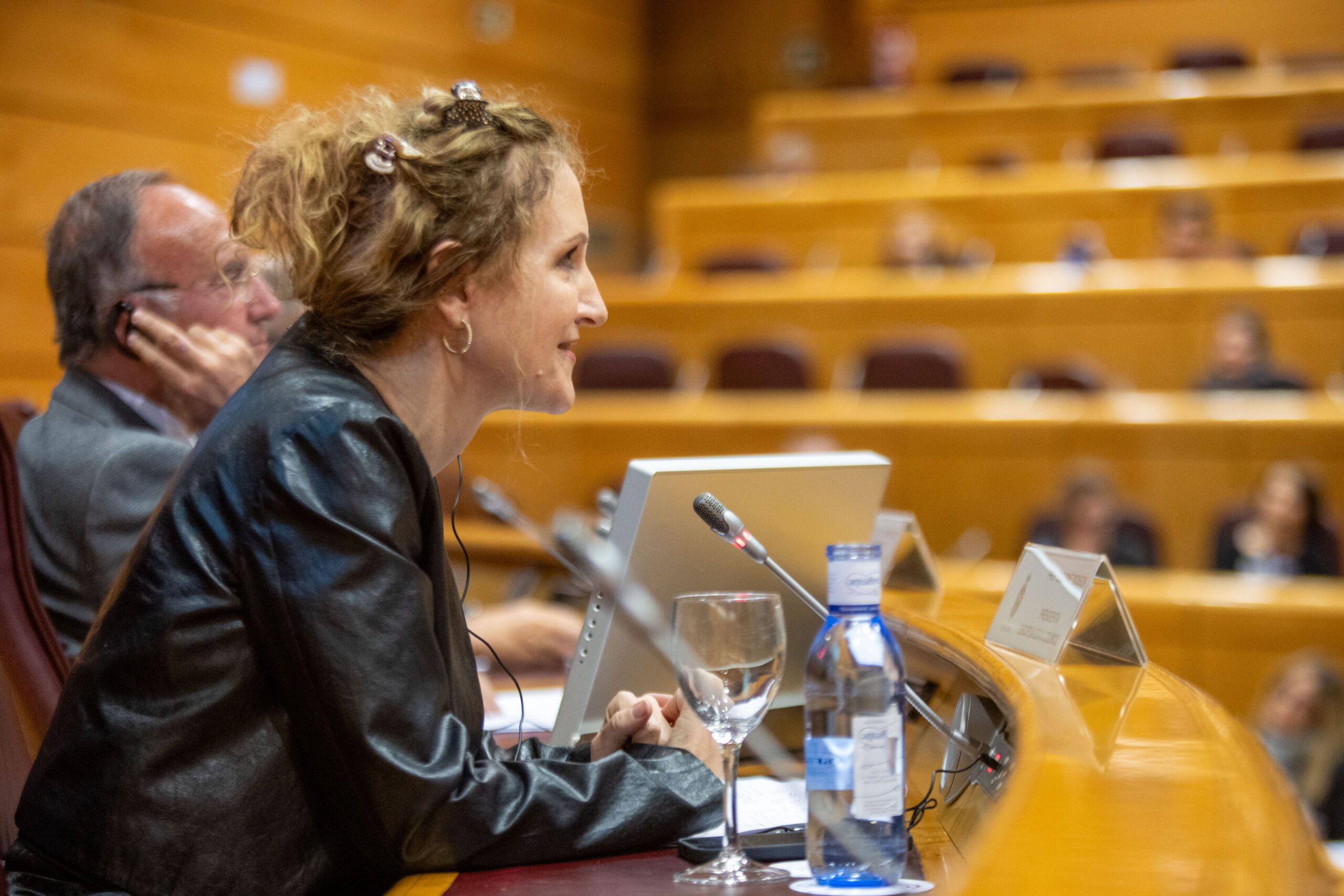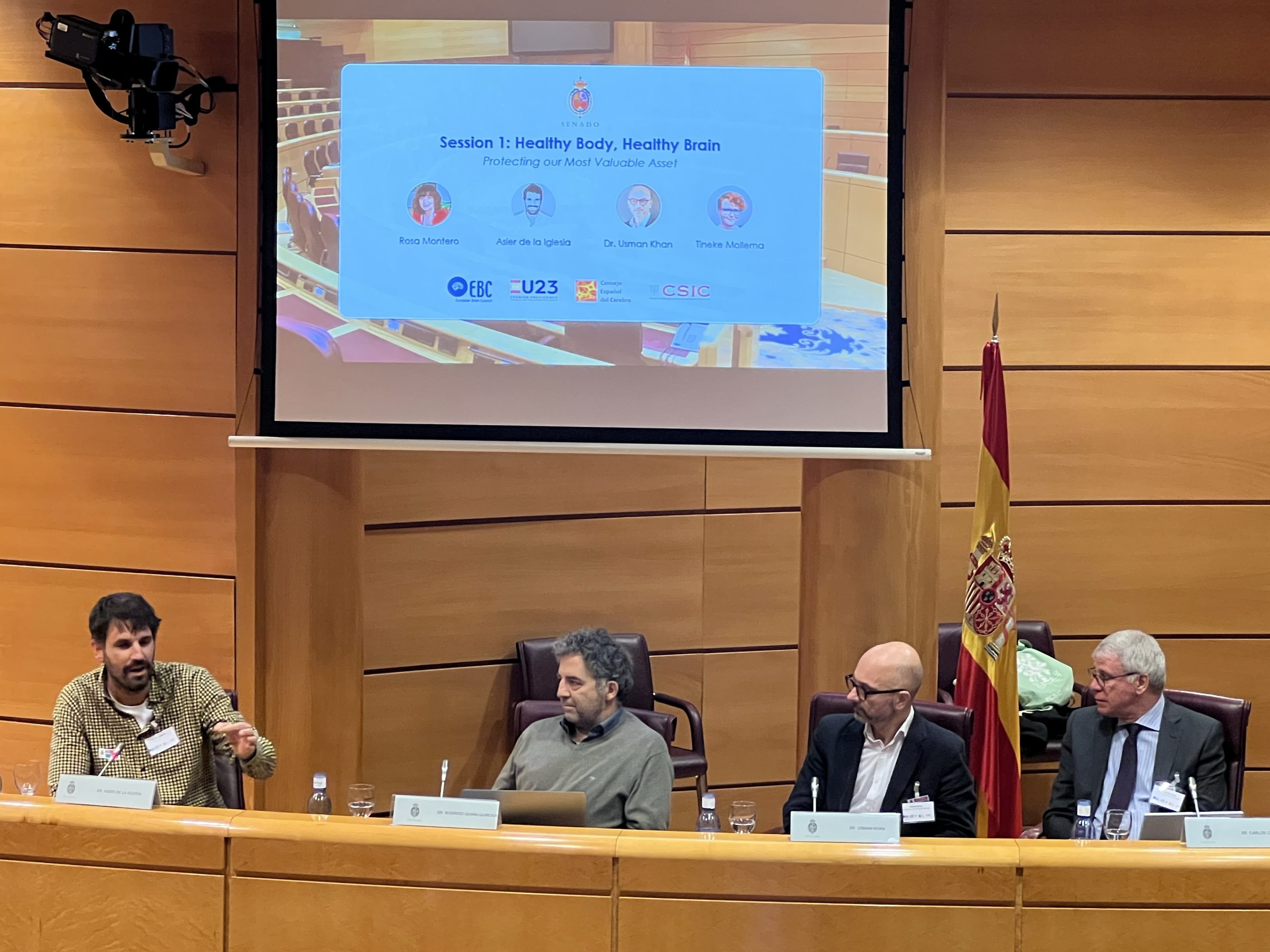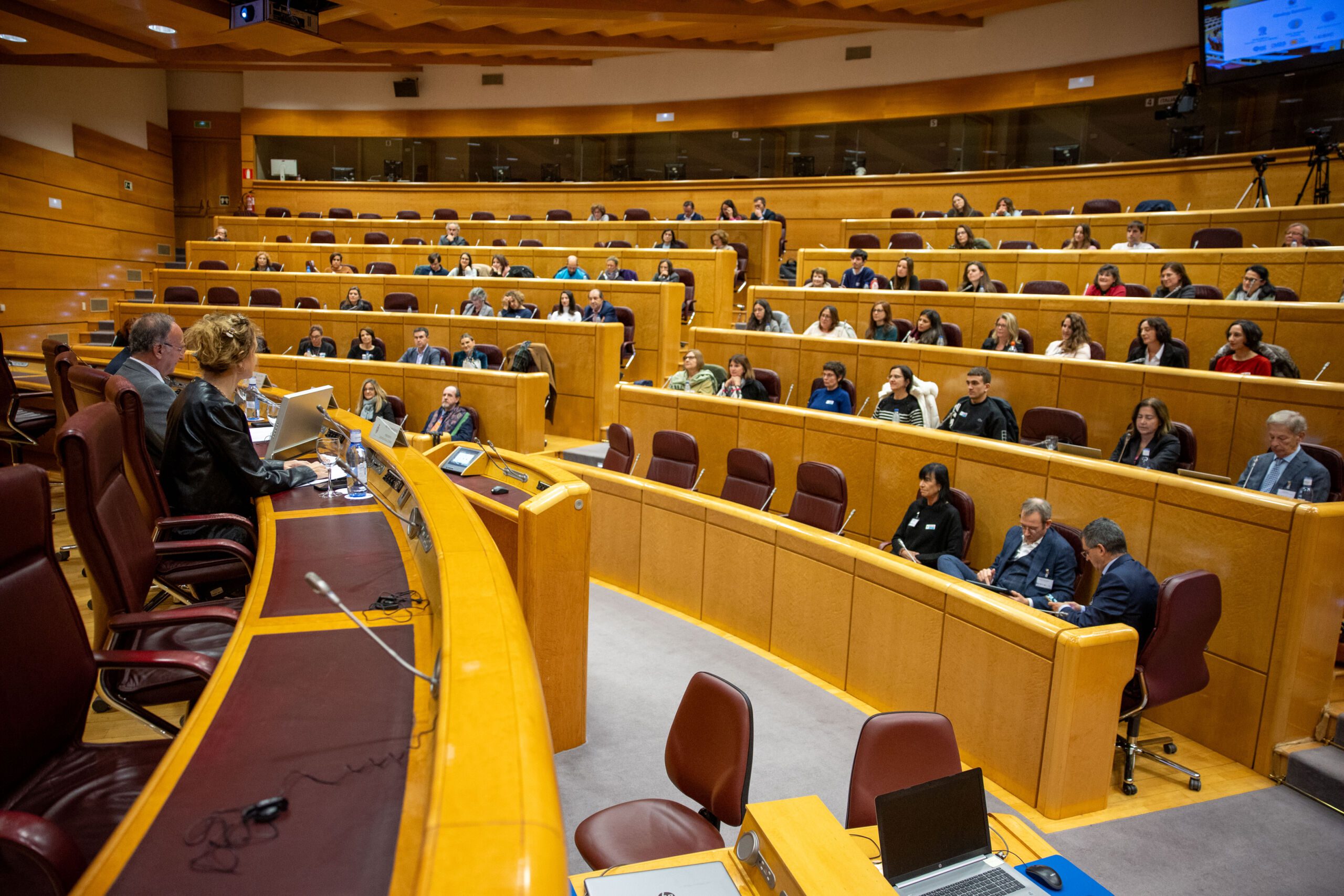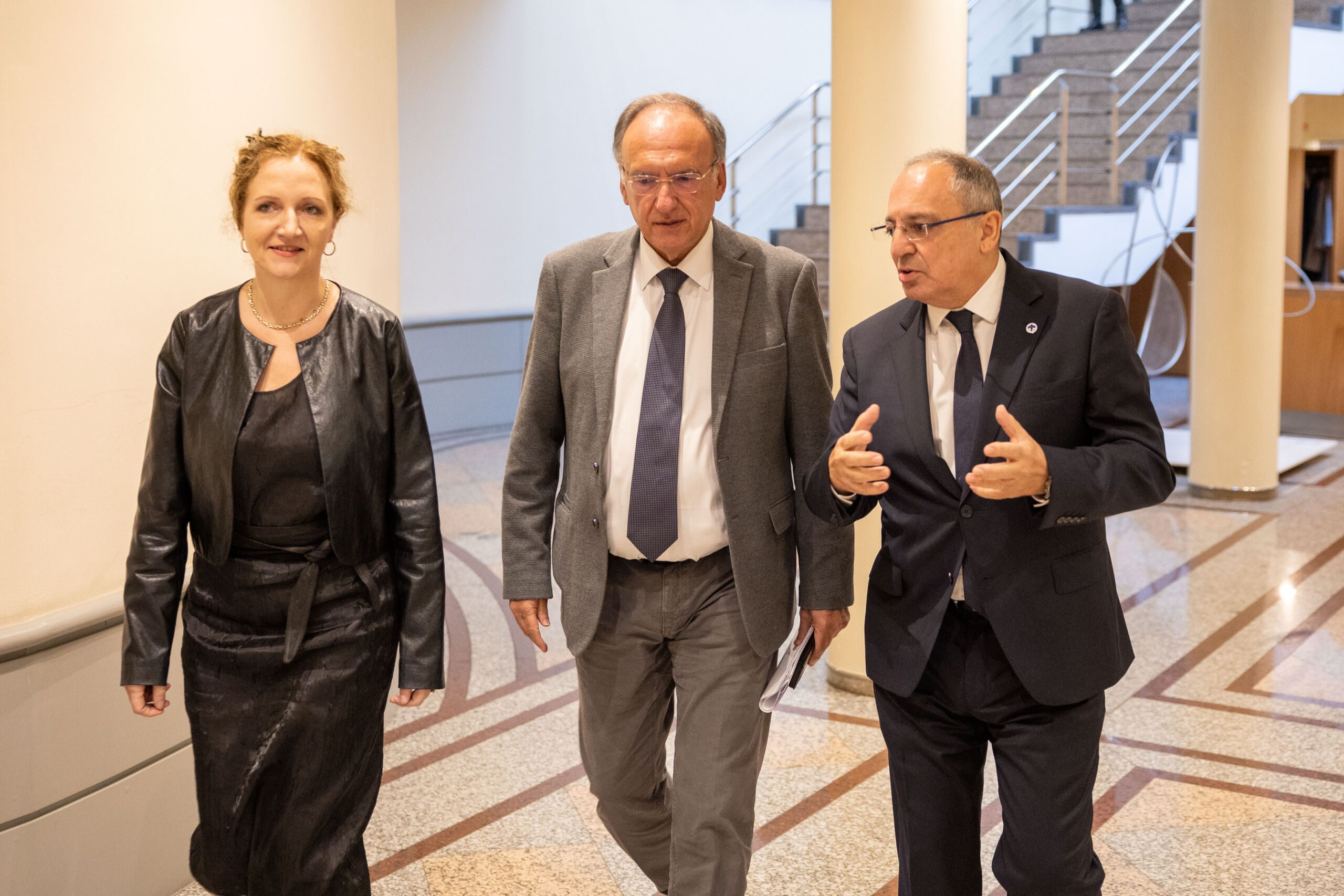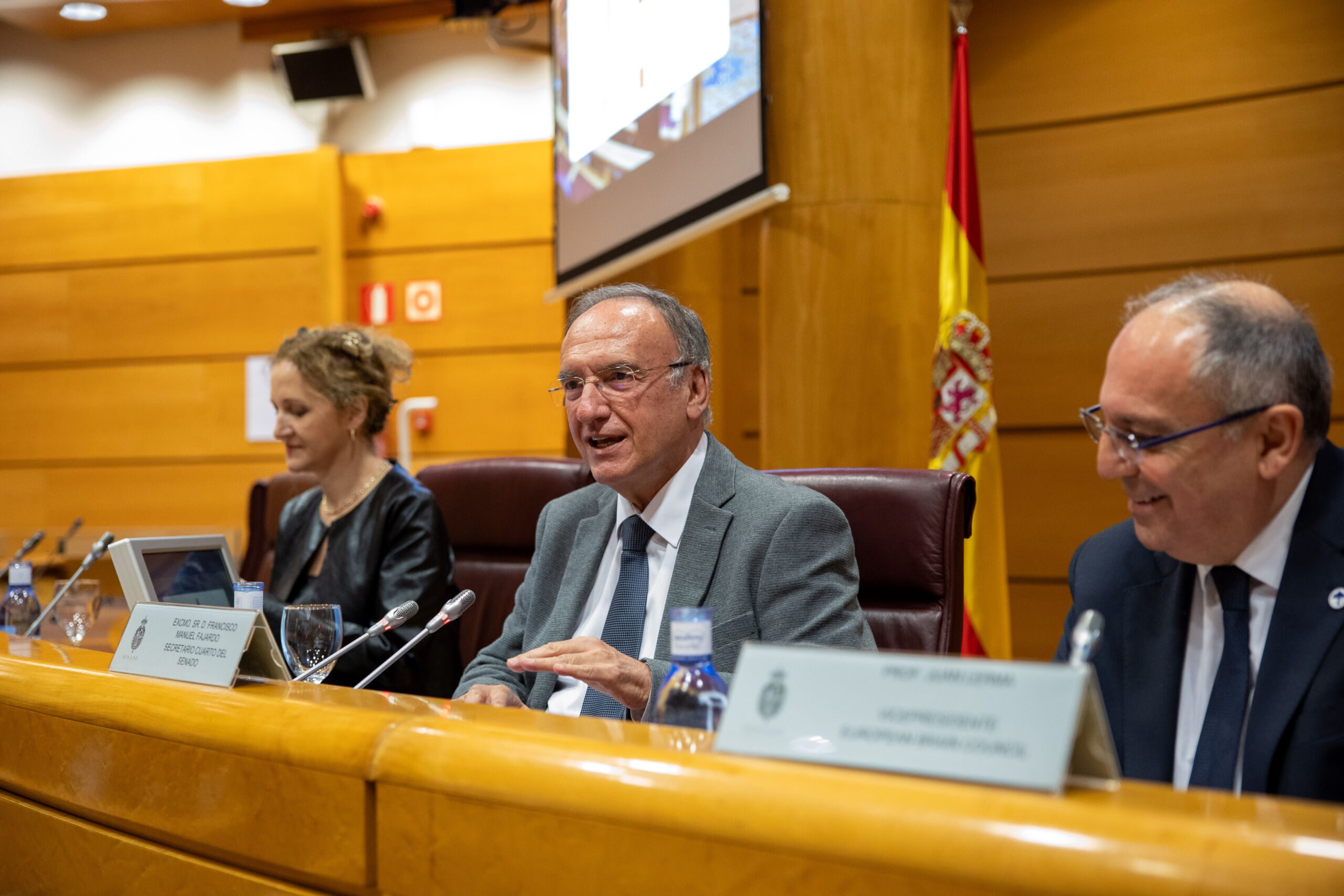On 28 November 2023, the European Brain Council (EBC), in partnership with the Spanish National Research Council (CSIC) and the Spanish Brain Council, held the event “Our Brains, Our Future: The Value of Brain Research – from Basic to Clinical – to Improve Patient Outcomes in Europe” in the Senate of Spain, Madrid, under the auspices of the Spanish Presidency of the Council of the European Union.
Building on the strong emphasis placed by the Spanish Presidency on improving health outcomes across the EU, the programme was conceived to shed light on the steadily growing burden of brain disorders, calling for the urgent prioritisation of brain research in Europe and increased efforts towards the translation of basic neuroscience into clinical practice for the benefit of patients.
Brain disorders, neurological and mental alike, are widespread, disabling, and difficult to treat. They are among the greatest challenges of our time, as it is estimated that up to one billion people worldwide live with a neurological condition and 970 million people around the world were living with a mental health disorder as of 2019.
Full Day Recording (English Version)
The bilingual conference brought together leading scientists, patients, industry representatives and policymakers to speak with one voice in advocating for a brain healthy future for Europe and beyond.
The morning kicked off with an opening address from Prof. Carlos Closa, Vice-President of the Spanish National Research Council, Prof. Suzanne Dickson, EBC President and Prof. Juan Lerma, EBC Vice-President. Prof. Richard Morris, Edinburgh Futures Institute, President of the Federation of European Neuroscience Societies (FENS) and Brain Prize Winner 2016, opened with a powerful keynote on “The Complexity of the Brain”. Prof. Morris led the audience on a exciting journey through neuroscience, addressing the memory, Alzheimer’s disease, the strides made in understanding the brain and how much more there is to do. This keynote lecture perfectly set the ground for the next sessions.
Focused on “Healthy body, healthy brain – protecting our most valuable asset”, the first session amplified the voice of people with lived experiences of neurological or mental disorders. After introducing the session, Dr. Usman Khan, Chair of the Motor Neurone Disease (MND) Association, shared his story as a health policy professional living with multiple sclerosis, followed by Rosa Montero, Novelist, who told the audience about her experience with panic attacks from the age of 16 to 30, And Asier de la Iglesia, a Professional Basketball Player, who took the floor giving a glimpse of what it’s like to play at a high level while living with multiple sclerosis. Finally, Tineke Mollema, Board Member of GAMIAN-Europe, provided shared how bipolar disorder has affected her life.
Following these testimonies, the second session addressed “Understanding the brain – from genes to circuits and back”, stressing the importance of basic research and encouraging collaboration between researchers on the way to innovative treatment.
Prof. Juan Lerma took the floor first, with a presentation focused on Genes, circuits and behaviour. Prof. Lerma illustrated the molecular basis on neuronal communication and how deregulations could trigger brain disorders – notably schizophrenia and autism spectrum disorders.
Prof. Rodrigo Quian Quiroga, ICREA Research Professor, then introduced the audience to Jennifer Aniston neurons, the fascinating explanation behind the study of single neurons in the brain seemingly react to the faces of specific familiar people, encoding and responding to highly specific but complex stimulus, such as famous actress Jennifer Aniston or cult favourites like Star Wars characters; and the Unique coding of memories in the human brain.
After a short break, the conference continued with the third session, focused on “The challenge of addressing patients’ needs”. The session first hosted a keynote lecture on Personalised and Precision Medicine in patients with autism spectrum disorders (care and research) given by Dr. Mara Parellada, Coordinator of the AMITEA programme. Dr. Parellada’s presentation revolved around the importance of exploring the biology of autism to better tailor treatments and develop new medicines.
Both Dr. Parellada and Prof. Obeso joined the panel discussion immediately after, focused on the value of increased patient engagement in brain research. Moderated by Usman Khan, the panel discussion benefited from a patient, clinical and industry perspective, with interventions from Prof. Giancarlo Comi, President of the European Charcot Foundation; Dr. Paola Zaratin, SSC Co-Chair of the PROMS Initiative and Director of Scientific Research of the Italian MS Society – Italian MS Foundation; and Stephanie Hoffmann-Gendebien, Head & General Manager of Amylyx Pharmaceuticals EMEA.
Full Day Recording (Spanish Version)
The final session turned to the future and “Addressing brain challenges at the EU level”. Moderated by Frédéric Destrebecq, EBC Executive Director, the session stressed the need for policy action to better support the coordination between basic and clinical research efforts, mobilise resources and encourage the sharing of best practices, education and awareness raising. Panellists included Prof. Suzanne Dickson; Dr. Mara Dierssen, President of the Spanish Brain Council; Dr. José Luis Lanciego, Member the Pan-European Committee of the International Brain Research Organization (PERC-IBRO) and EBC Board Member; Cristina Maragall, President of the Pasqual Maragall Foundation; and Dr. Francisco Colomer Sanmartín, from the Directorate General for Research Planning of the Spanish Ministry of Science and Innovation.
After a short Q&A session, His Excellency Mr. Francisco Manuel Fajardo, Fourth Secretary of the Senate’s Bureau; Prof. Suzanne Dickson and Prof. Juan Lerma brought the conference to a close, highlighting the significance of the discussions held throughout the programme for the future of brain research in Europe.



